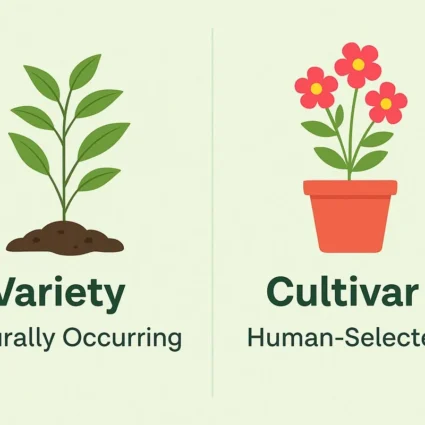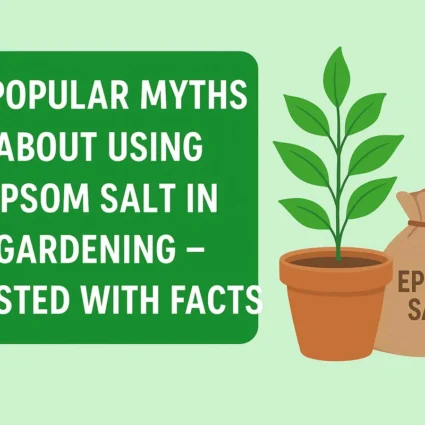
The Effects of Summer Heat on different Types of Plants
Summer is a beautiful time for outdoor activities and enjoying the warm sunshine, but the high temperatures can significantly impact plants. While some plants thrive in the heat, others may struggle or even die if not cared for properly. In this blog post, we will explore the effects of summer heat on different types of plants and how to keep them healthy and thriving during the hot months.
Also Read This :A Plant-Based Diet for Better Health: Why It’s Worth a Try
Plants are Very Similar to People
As the temperature warms and the days lengthen, a plant’s thirst for water grows, and they sweat a little more like humans do. Only their roots get water from the soil, which then goes up the plant to the rest of the plant. As a result, in the summer, it is required to water plants twice with pure water.
Effects of Heat on Plants
Heat affects plants in several ways. One of the most apparent effects is dehydration. When the temperature rises, plants lose water faster through their leaves, leading to wilting, yellowing, and death if not addressed.
Also Read This :Green Thumbs Up: Tips for Properly Watering Your Indoor Plants
Another effect of heat on plants is sunburn. Just like human skin, the leaves of plants can burn if exposed to direct sunlight for too long. Sunburned leaves may turn white or yellow and eventually die, affecting the plant’s ability to photosynthesize and grow.
Heat can also increase the risk of pests and diseases. Hot and humid conditions create the perfect environment for pests like spider mites, aphids, and whiteflies to thrive. Additionally, high temperatures can cause plant tissues to soften, making them more vulnerable to fungal and bacterial infections.
Also Read This :The Ultimate Guide to Perlite: Everything You Need to Know
Types of Plants and Their Response to Heat
Different types of plants have varying responses to heat. Some plants are heat-tolerant and can thrive in hot conditions, while others may struggle or even die if not cared for properly. Here are some examples:
Succulents and Cacti
Succulents and cacti are known for storing water in their leaves and stem. As a result, these plants have adapted to harsh and arid conditions and withstand high temperatures. However, many succulents and cacti prefer hot, dry climates and will thrive in the summer heat.
Also Read This :Navratri Flowers: Symbolism and Importance
Tropical Plants
Tropical plants are native to warm, humid environments and thrive in temperatures above 70°F. However, if the temperature rises above 90°F, it can stress tropical plants and cause them to wilt or drop their leaves. If you have tropical plants in your garden, provide them with shade during the hottest part of the day and keep the soil moist.
Fruit Trees
Fruit trees like citrus and avocado require warmth to produce fruit. However, if the temperature rises above 100°F, it can cause the fruit to drop prematurely or prevent it from forming altogether. To prevent this, make sure to water fruit trees regularly and provide them with shade during the hottest part of the day.
Also Read This :Greening Your Home: The Benefits of Indoor Plants
Vegetables
Many vegetables, such as tomatoes and peppers, thrive in warm weather and require temperatures between 70°F and 85°F to grow. However, if the temperature rises above 90°F, it can cause the plants to stop producing fruit or even die. To protect your vegetable plants, water them regularly and provide shade during the hottest part of the day.
Annuals and Perennials
Annuals and perennials are sensitive to heat stress and can wilt or die if the temperature rises above 90°F. To protect your flowers, make sure to water them regularly and provide them with shade during the hottest part of the day.
Also Read This : 12 Delicious and Nutritious Herbal Teas to Boost Your Health
Herbs
Herbs like basil, thyme, and oregano are popular for summer gardens because they love the heat and can be used in many delicious recipes. However, they need regular watering and well-draining soil to prevent root rot. Additionally, pruning can promote healthy growth and avoid overcrowding.
Tips for Keeping Plants Healthy in the Heat
To keep plants healthy and thriving in the heat, here are some tips to keep in mind:
Water regularly
Plants need more water during summer, so water them deeply and consistently. Avoid overwatering, as this can lead to root rot and other issues.
Also Read This :10 Summer Solutions: How to Safeguard Your Balcony Garden from Heat Stress and More
Provide shade
Use shade cloths or umbrellas to protect plants from intense sunlight, especially during the hottest part of the day.
Mulch
Mulching can help retain moisture in the soil and prevent water loss through evaporation.
Also Read This :Discover the Secrets to Growing Beautiful Cardamom Plants!
Prune
Prune dead or damaged leaves and stems to promote healthy growth and prevent overcrowding.
Fertilize
A balanced fertilizer provides essential nutrients for plant growth and development.
Also Read This :Rubber Plants: A Beginner’s Guide to Growing and Maintaining Them
Monitor for pests and diseases
Monitor for signs of problems and conditions, and address them promptly to prevent further damage.
In conclusion, the effects of summer heat on different types of plants vary widely. While some plants thrive in hot, dry conditions, others require more moderate temperatures and protection from the sun. By understanding how different types of plants respond to heat stress, you can provide them with the care they need to thrive in the summer months.
Also Read This :Revitalize Your Mind and Body with the Power of Brahmi




